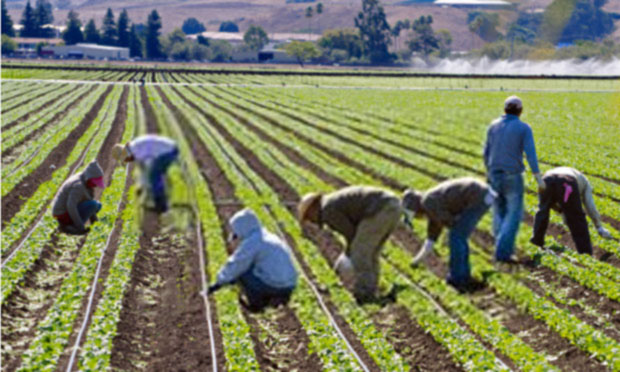In the United States, illegal immigration has long been the subject of public debate as well as political skirmishing. The 1986 Immigration Reform and Control Act (IRCA) attempted to reduce the flow of undocumented immigrants through a mix of amnesty programs, increasing monitoring of employers and tighter border controls; after the 9/11 attacks, policy shifted toward enforcement, even as the collapse of the housing markets in 2007 led to declining rates of immigration. Despite this, immigration is still a key issue in the 2012 presidential contest.
A 2011 study published in Economic Inquiry, “Implications of Immigration Policies for U.S. Farm Sector and Workforce,” examined the effect of U.S. immigration policy on the flow of unauthorized immigrants from Mexico and the subsequent impact on the nation’s economy. The researchers, based at Washington State University and the University of Idaho, modeled the relationship between restrictive policies and the productivity of the U.S. agricultural sector.
The findings include:
- There is a strong relationship between spending on border security and rates of illegal immigration from Mexico. “As the probability of apprehension of illegal immigrants at the border increases, the flow of undocumented workers into the United States lessens.”
- A 10% increase in domestic enforcement spending, primarily worksite surveillance, reduces the wage rate for illegal workers more than 11%; curbs illegal labor use by approximately 9,000 workers to U.S. agriculture; and decreases U.S.-Mexico commodity trade by an average of $180 million.
- “Heightened border enforcements reduce the employment of undocumented workers and commodity production, which causes U.S. agricultural exports to Mexico to decline by an average of 5%.”
- Reductions in the immigrant labor force has caused labor shortages in several states and has had “devastating effects on farm production and profitability.” These are being felt by consumers through higher costs for fruits and vegetables.
“The results of the study show the distinct tradeoffs between reducing illegal immigration into the United States, and the productivity of the agricultural sector, and subsequently the U.S. economy,” the researchers state. “U.S. government policies aimed at deporting unauthorized workers — without taking adequate measures to supply farm laborers through guest-worker programs — will adversely affect the supply of farm laborers to crop production.”
Tags: Latino, Hispanic, California, organized labor


Expert Commentary